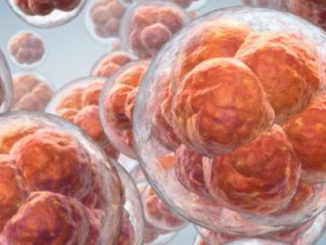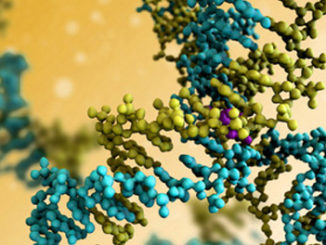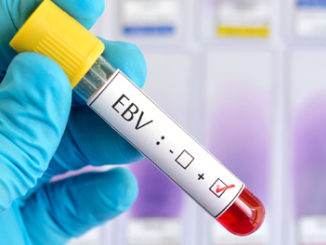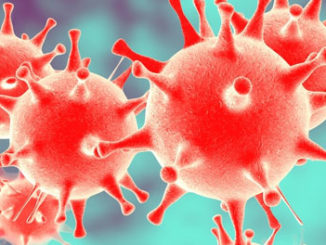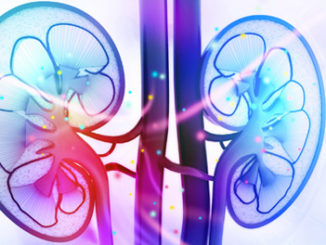Articles that explore the connection between epigenetics and diseases and disorders, including cancer, cardiovascular disease, diabetes, autoimmune disease, and more.
We’ve often heard that certain foods might have the power to reduce our risk of disease. There’s Epigallocatechin gallate (EGCG), a major polyphenol found in green tea, that may help prevent tumor growth, or DHA, one of the major omega-3 fatty acids found in fish and nuts, that could protect neurons and perhaps lower the chances of developing a neurodegenerative disease. Now, even more evidence suggests that cruciferous vegetables may be able to slow the cell growth of one of [more…]
Different environmental factors experienced by a child can undoubtedly impact their life in the long run. Whether they were born into poverty, lack access to education, or are surrounded by violence, these experiences have the ability to dramatically disrupt their lives if they’re without the right support system. But, could a mother’s exposure to stress impact her child even before he or she is born? And could the way a mother treats her child buffer any adverse impact? Research on [more…]
What if stress experienced by fathers could actually be passed down epigenetically to their children, who then experience its effects later in life? Previous research has hinted that, in mice, trauma experienced by a father leaves epigenetic marks on his sperm RNA, which is inherited by his offspring who later express the same depressive behaviors as their dad. Also, another study that investigated the devastating Quebec Ice Storm of 1998 has suggested that prenatal maternal stress could trigger distinct DNA [more…]
Epigenetic reprogramming occurs to the developing mammalian zygote immediately after fertilization and is crucial for proper development. This reprogramming is defined as the erasure of epigenetic marks such as DNA methylation and histone modifications. Researchers continue to uncover new information about the changes made to epigenetic marks on the embryo’s epigenome. In fact, a new study has found that when the process of epigenetic reprogramming goes awry, it can have severe consequences later in development, for instance, leading to abnormal [more…]
Imagine if increasing a certain type of epigenetic enzyme could ease anxiety or cure post-traumatic stress disorder (PTSD) by simply erasing troubling memories? What if it could also enhance cognitive abilities and improve long-term memory and learning? In previous blog articles, researchers found that an immune-suppressing drug that inhibits HDACs could stop aversive memories and the epigenetic mechanism known as histone acetylation might play a role in memory plasticity. Although we are far from developing epigenetic therapies to erase traumatic [more…]
Planaria, or flatworms, are often used as a model organism to investigate the fascinating process of how tissues and organs can regenerate. The flatworm has numerous stem cells called neoblasts and, when it’s injured, this intriguing creature can actually restore its own body parts. Researchers conducted the study at the Stowers Institute for Medical Research in the lab of Alejandro Sánchez Alvarado, Ph.D., a Howard Hughes Medical Institute investigator. In two related studies, they examined stem cell differentiation and the [more…]
The Epstein-Barr virus (EBV) is one of the most common human viruses found all over the world. It spreads via bodily fluids, especially saliva, and causes what many may be familiar with – infectious mononucleosis, or mono. This virus, when in its latent form in humans, can also lead to cancer of the upper-throat, or nasopharyngeal carcinoma (NPC). Researchers from University of Wisconsin-Madison have discovered that an epigenetic mechanism known as DNA hydroxymethylation can alter the virus’s DNA and impact [more…]
If you’ve ever had a cold sore – you know those pesky, unsightly blisters that pop up on your lip right before an interview or a first date – you may have herpes. But, wait, the herpes simplex virus (HSV) is probably not as bad as you think and it’s very common. There are actually two different types. Type 1 is associated with oral herpes, which is the virus most likely causing the cold sores, whereas type 2 is associated with [more…]
The chemotherapy drug cisplatin has been successful in combating aggressive cancers, including neck and head, lung, and ovarian cancers, for nearly 40 years. However, many patients suffer from kidney damage as a result of the drug and there is currently no therapy available for treating or preventing cisplatin nephrotoxicity. Researchers have found that histone deacetylase (HDAC) inhibitors can improve the kidneys in the presence of the cancer drug by eliminating 80 to 90 percent of kidney toxicity. They published their [more…]
In a new study, researchers have found that epigenetic effects can result from taking a popular antidepressant drug, which may help indicate whether or not a patient will respond positively to the drug. The research team, led by scientists in Germany from the Max Planck Institute of Psychiatry, found a molecular pathway that changes global DNA methylation while in the presence of paroxetine, also referred to as Paxil, a selective serotonin reuptake inhibitor (SSRI). SSRIs are the most commonly prescribed [more…]





